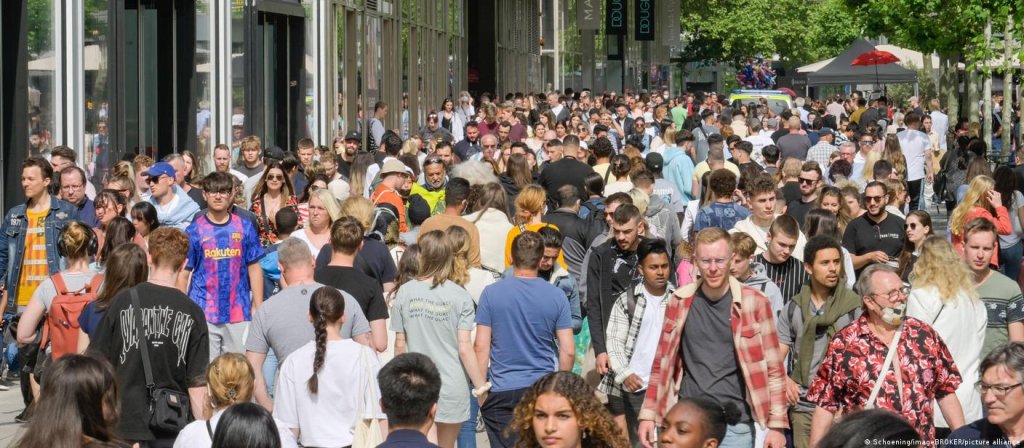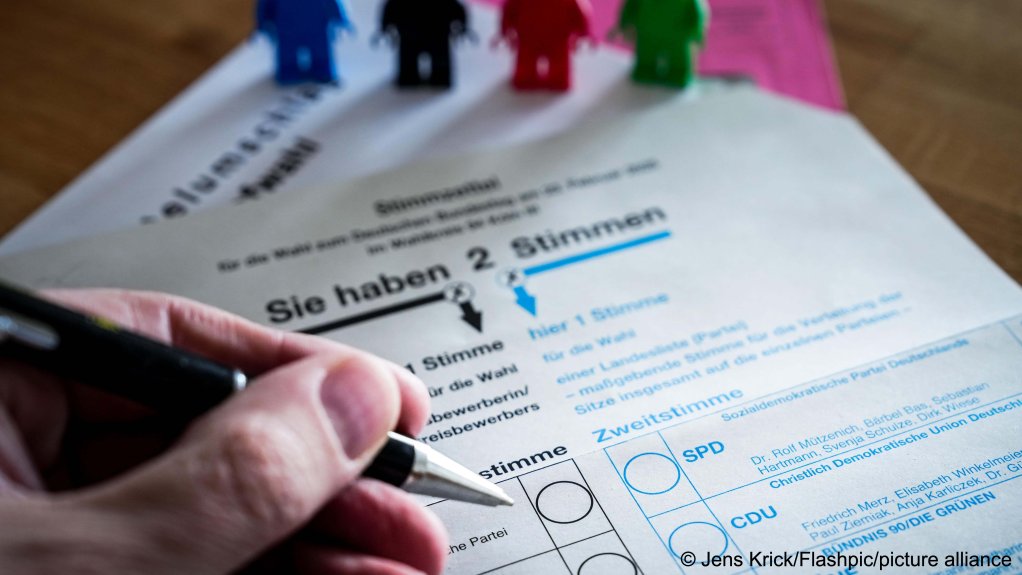Germany is a multicultural, pluralistic society, where about 12 percent of eligible voters have a foreign background. In Germany, this is defined as a person who is at least one quarter non-German. While some of them have been allowed to vote for generations, others will be casting their ballot for the first time.
There are several million people with a foreign background who have lived and worked in Germany for several generations, such as the Turkish and Italian diasporas in the country.
However, the number of more recent additions, such as war refugees from countries like Syria and Afghanistan who are casting their ballots as naturalized German citizens for the first time, is slowly growing, even though some of them have spent a decade or even more in the country, integrating into German life.
With Germany loosening its citizenship laws last year, which previously banned dual citizenship, the number of foreigners becoming naturalized as Germans is expected to grow in the coming years. For this election, it is not widely believed that refugees who have become German citizens will play the role of kingmaker in the election, although they could make a dent in the end result.

Since the last election in 2021, over half a million people were naturalized as German citizens in 2022 and 2023 alone, according to figures from the Federal Statistical Office, with another 250,000 people projected to have accepted German citizenship in 2024.
Over a fifth of those who acquired German nationality in those years are believed to be Syrians, with another fifth being Iranians.
Read AlsoGerman elections: Where do the parties stand on migration and asylum?
Rate of refugee voters growing
While specific data on the behavior of individual groups of people — such as Syrians, Afghans or Iranians who have been naturalized as German citizens — is not yet available, as for many of them this will be the first time they get to cast their votes in Germany, polls from previous German elections show that many foreigners who originally came to the country from southern Europe and Turkey tend to favor the Social-Democrats (SPD) at the ballot box.
With left-of-center views and a broadly welcoming attitude towards foreigners, this party seems to appeal to those who aren't native to Germany.
At the same time, the poll also showed that people from Eastern Europe — especially Russians with a German background — preferred the Christian Democrats (CDU/CSU), which broadly reflect more conservative, right-of-center views.
Read AlsoGermany's migration policy: Balancing labor needs and deportation
Wild cards in this elections
These previous polls, however, may be skewed as a benchmark for the upcoming election, as one party — the AfD party (Alternative for Germany) — has grown significantly in support in recent years. The AfD is a far-right party, which opposes mass immigration, especially from countries that are not Christian or Western.
The AfD is expected to enter the Bundestag, Germany's lower house of parliament, as the second-largest faction with 20 percent of the vote or even more, and some of the voters of this party will also be people of foreign extraction.

Sociologist Friederike Römer, who works for the German Center for Integration and Migration Research (DeZIM) found that certain migrants who have been living in Germany for a considerable length of time, especially those from the MENA region (Middle East and North Africa) and Turkey felt attracted to the party.
"[They] are being told: you are not the problem, the newcomers are the problem," Römer, said explaining the modus operandi of the AfD among people with a migration background. This message is also attracting growing interest among voters of Russian extraction, she added.
But there's another noteworthy trend: Römer also found that the percentage of people with a foreign background working for far-left parties is also growing: The Sahra Wagenknecht Alliance (BSW) party as well as the Left Party (Die Linke) attract higher approval ratings among people with a migration background than among Germans.
DeZIM also found that about a quarter of voters in Germany with a foreign background come from the MENA region plus Turkey, while about 12 percent represented people with a background in Russia.
The vast majority of voters with a foreign origin — over 42 percent — were found to be citizens of other EU nations
Read AlsoVideo: Germany's migration debate: What the parties want
Visibility for those who can't vote
Meanwhile, there also are initiatives to draw attention to people who have been living in Germany for a long time but cannot vote at all due to their lack of German citizenship.
An initiative named "Wir Wählen" (which translates as "we vote") highlights the fact that there are more than five million individuals in Germany, who have been living in the country for more than 16 years but do not qualify to cast a ballot.

The initiative hopes to change the way that government thinks about those who should and shouldn't vote, stressing that the Bundestag is by definition also representative of those who don't have a say in how it's comprised.
Supported by 30 organizations, including various NGOs and individuals German municipalities, "Wir Wählen" conducts a parallel mock vote each year to gauge whom foreigners in Germany would support if they were allowed to vote, the result of which will only be publicized once the election is over.
Read AlsoIn Germany, 10 million people excluded from upcoming vote
Key political issues among immigrants
Various polls meanwhile find that immigrants largely care about the same top issues as native Germans: DeZIM researchers discovered that the main concerns of voters with and without a migration background are chiefly the weakening German economy and inflation.
However, following these two policy issues, people of a foreign background stated that the prospect of falling victim to violent crime was the third key point they cared about.
They were also deemed to be concerned about issues such as retirement and their housing than people without a migration background.
Finally, many expressed a particular interest in the situation of the Middle East: Around 43 percent of the people surveyed with foreign roots said they were "very concerned" about this particular issue, while the figure among people without a migration background was around 35 percent.
Read AlsoGerman study: Immigration does not raise crime rate
